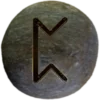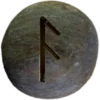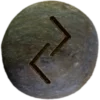Last Updated on December 27, 2024
Table of Contents


The Völvas (VUR-lvahs), sometimes spelled Volvas, were powerful seeresses and practitioners of magic. These women played an essential role in guiding communities through prophecy and ritual. The term völva translates to “wand-wielder,” referencing the staffs they carried as symbols of their power and connection to the divine. They specialized in seiðr (pronounced SAY-thur), a form of magical practice involving divination, fate-weaving, and communication with spirits. Völas also performed spá, a type of divination that revealed future events.
Völvas (Völur) often traveled independently or resided with chieftains who sought their guidance. Historical accounts describe them as revered figures, respected for their wisdom and feared for their abilities. The Saga of Erik the Red provides one of the most detailed depictions of a völva named Thorbjörg Lítilvölva (LIT-ill-vur-lvah), or “Little Prophetess.” She wore elaborate clothing adorned with animal skins, beads, and magical charms, highlighting her esteemed status.
Völvas performed rituals to reveal insights about harvests, warfare, and personal destinies. Using chants, known as galdr (pronounced GAHL-dur), and ritual objects, they entered trance-like states to access hidden knowledge. Communities depended on their predictions, especially during uncertain times. They also influenced decisions by invoking the favor of gods or redirecting ill fortune.
While primarily women, some men practiced seiðr, but they faced scorn in patriarchal society. Odin, the chief god, learned seiðr from Freyja, the goddess most associated with this practice. This connection underscored the mystical power völvas wielded and their role as intermediaries between humans and the divine.
Archaeological finds, such as staffs buried with women in high-status graves, suggest völvas were honored even in death. These objects, combined with written sources, emphasize their importance in spiritual and social life. Völvas remain iconic figures, symbolizing wisdom and the mysterious power of fate.
Runes Associated with Völvas
The Ansuz rune, symbolizing divine communication, reflects the völvas’ ability to channel messages from gods and spirits. The Perthro rune, linked to fate and the unknown, represents their role in unraveling destiny through seiðr. These Elder Futhark runes embody the mystical essence of völvas. ![]()
The Importance of Völvas to Asatruar
For Asatruar, völvas symbolize the sacred connection to fate and the gods. Their practices inspire modern rituals that honor intuition and divine wisdom. Through blóts (sacrificial offerings) or spiritual meditations, Asatruar connect with the ancestral practices of these revered seeresses. Völvas remain an enduring example of spiritual power and devotion in contemporary faith.

